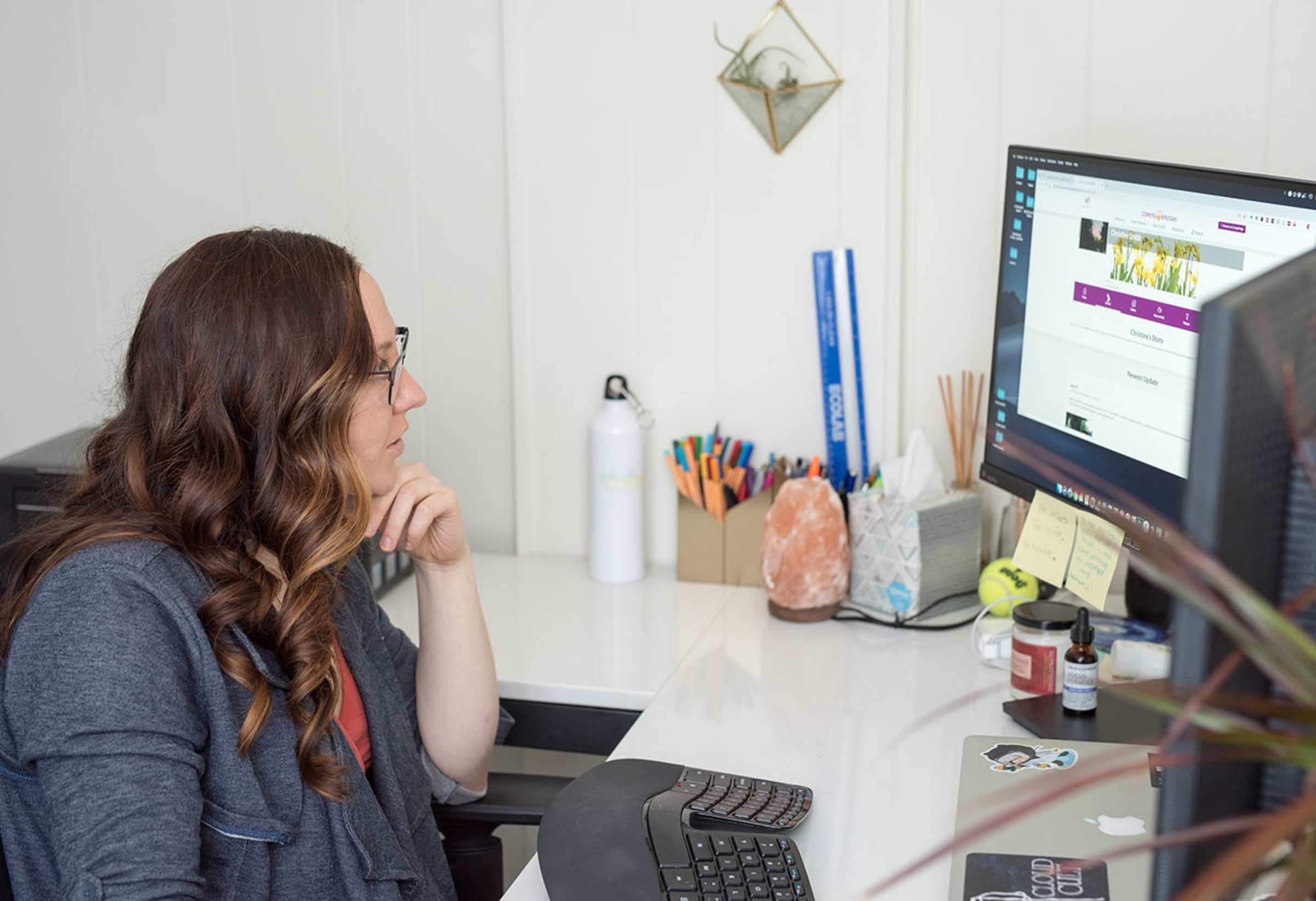
9 Ways to Support Cancer Patients (Backed by Research)
Have you ever struggled to offer help to a patient or family caregiver? It can be just as hard to know what is needed as it is for them to ask for help.
CaringBridge partnered with a team of technology researchers at the University of Minnesota to identify useful ways to provide support during cancer journeys.
With more than 800 survey respondents from patients and caregivers using CaringBridge, you may find the results useful as you help loved ones with cancer.
The research found that 46% of patients and 59% of caregivers report needing instrumental support more frequently than they ask for it.
What’s more, 22% of patients and 31% of caregivers almost never ask for instrumental support, even if they report needing it sometimes. That’s a lot of unmet needs, especially for caregivers.
It is important to find new inspiration for ways to help along a cancer journey. Here are nine research-based ways to show support for someone with cancer:
1. Help Out With Chores
Patients and caregivers agree that chores are the most useful way to lend a hand. Wouldn’t it be nice if someone else tidied up the kitchen, repaired that busted doorknob, took care of Snowball for a few weeks, or ran the laundry to the gosh-dang Laundromat? The little things in life can get pushed under the rug and create a sense of latent disorder, so getting help with routine household tasks and errands is key.
2. Transportation Assistance
Friends don’t let friends drive to the hospital on chemo brain. Plain and simple.
3. Bring Food
This one is classic, and so, so necessary for life. Let the beef stroganoffs and the fresh, ripe salads flow freely! When the going gets tough, it’s so sweet to receive a home-cooked meal, or maybe even a bite out on the town.
4. Exercise With Them
Has it ever occurred to you to offer or ask for a walk through the woods, a stroll by the lake, or maybe some grounding yoga? The fresh air and movement could do a body some good!
5. Offer Financial Assistance
Although it’s showing up at #5 in our list because we’re sorting by average scores, these ratings followed an obvious split. People either rated financial assistance as not at all useful or extremely useful, with fewer votes in the middle.
For families with ample resources, an offer of money might be inappropriate. But for many families, the financial toxicity of cancer is extremely difficult. Setting up a GoFundMe or contributing direct monetary donations might be a critical way to relieve financial strain, just use good judgement and tact!
6. Provide Some Personal Care
Sometimes, a moment of blissful pampering is in order. Wouldn’t it be nice to get that frizzy haircut fixed up… or maybe even get treated to a foot massage to relieve symptoms?
7. Give Practical Items
Ok, so you can’t help it. You just want a DVD set of every Downton Abbey episode ever and a warm fuzzy blanket. A choice item delivered at a choice moment can bring a world of comfort.
8. Help Out With Family Care
For those with children, special needs adults, or elderly family members to look after, having a friend help take care of dependents can be a godsend in a moment of need.
9. Arrange Shelter
If travel is necessary for treatment, then a place to stay is also sometimes necessary. Ever considered helping out with an Airbnb or a hotel room?
What the Data Say
We hope you found one or two new ideas to offer or ask for instrumental support. Keep in mind, though, that there are many other important types of help.
In fact, our survey participants actually rated spiritual support as the most helpful. Next is emotional support and instrumental support, and finally, informational support (e.g., information about medical treatments and things of that nature).
Regardless of how you may choose to seek or offer help, remember to start with one specific need at a time. Little by little, those add up to a whole lot of love (and less stress) for everyone on a cancer journey.
About the Author
C. Estelle Smith is a member of the Compassionate Technology Research Collaborative at the University of Minnesota, which has been partnering with the CaringBridge team to validate, through research, the science of healing. Estelle has experienced the power of CaringBridge first-hand; her family used it to share updates after her mom received a cancer diagnosis. Reading her mom’s CaringBridge site has inspired Estelle’s doctoral-level work on the power of online spiritual support during health journeys.
Leave a Comment Below
Curious about the details of this work? Leave a comment below if you’d like more information, or to participate in future research.